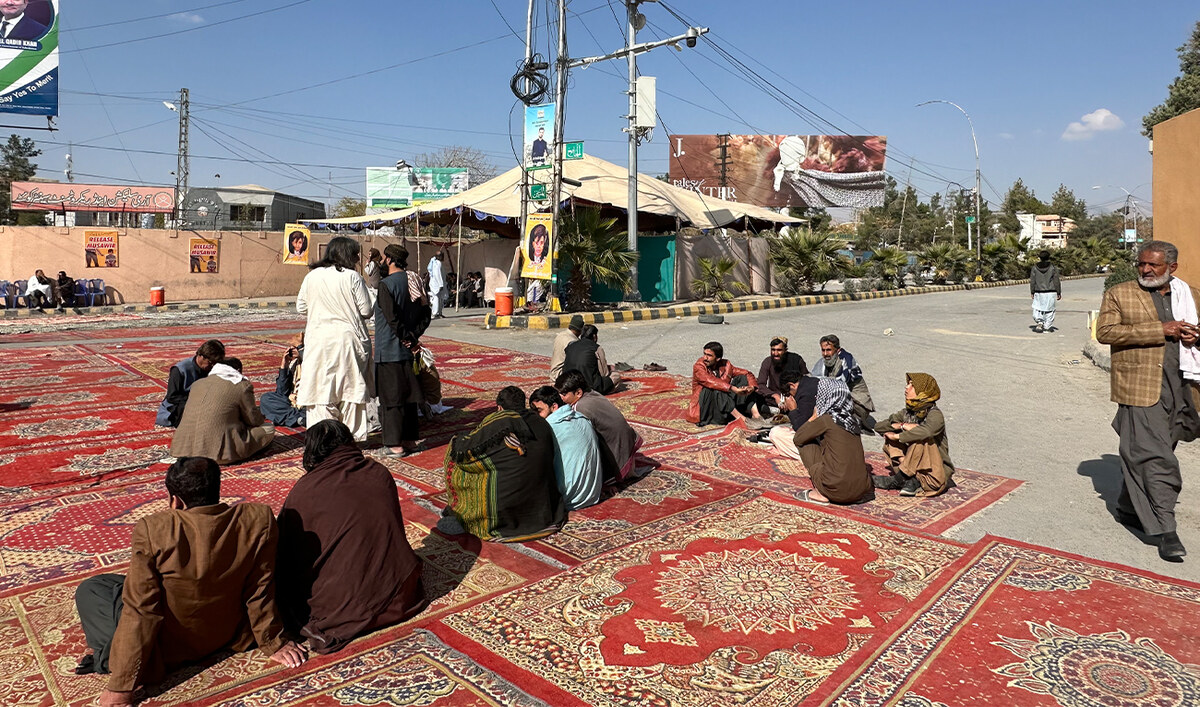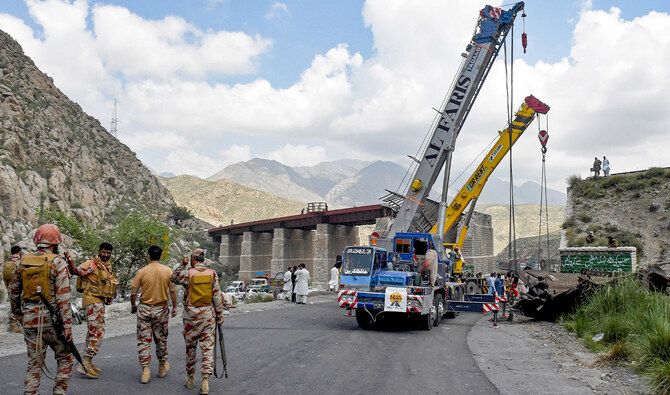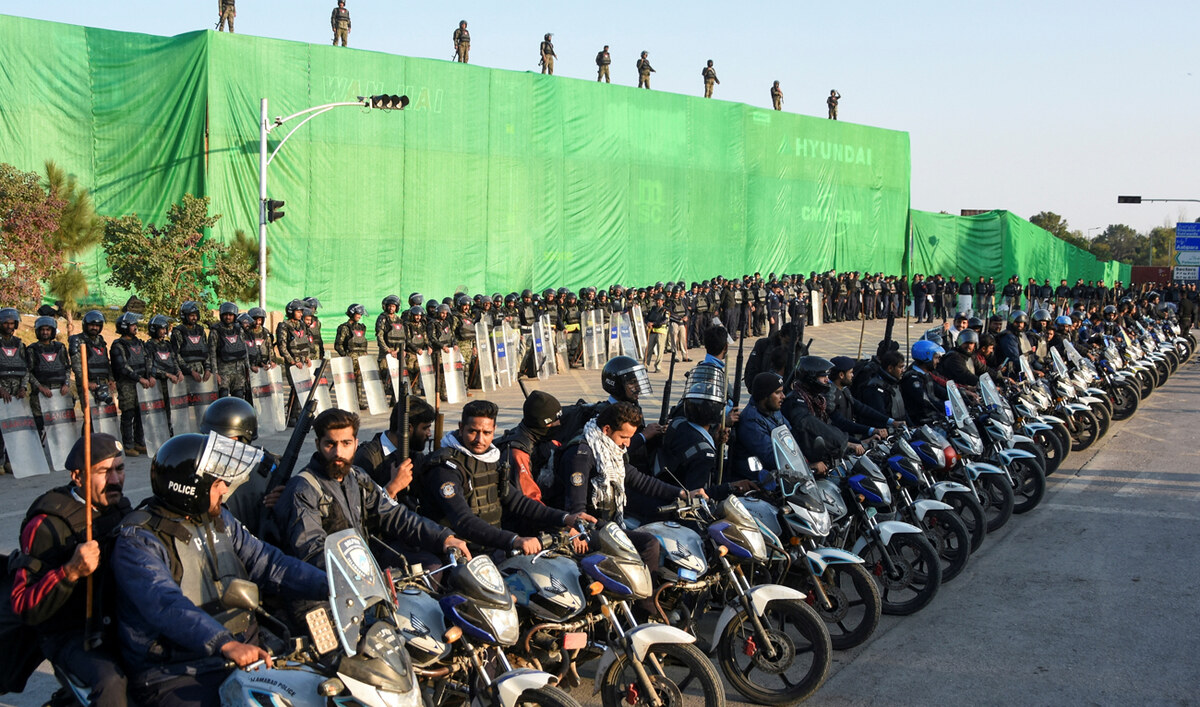ISLAMABAD: Pakistan conducted retaliatory strikes on what it called “terrorist hideouts” inside Iran on Thursday, the Pakistani foreign ministry announced, in response to an attack by Tehran against alleged militants within its territory in which Islamabad said two children were killed.
The strikes are the highest-profile cross-border attacks in recent years and come amid growing concerns about instability in the Middle East since the war between Israel and Hamas started on Oct. 7.
On Wednesday, Iran’s Foreign Minister Hossein Amir-Abdollahian confirmed Tehran’s strikes inside Pakistan, saying they had targeted militants from the Jash Al-Adil group a day earlier. Iran says the ethnic militant group has hideouts inside the country’s shared border with Pakistan and carries out attacks against Iran’s powerful Revolutionary Guard Corps.
“This morning Pakistan undertook a series of highly coordinated and specifically targeted precision military strikes against terrorist hideouts in Sistan-Baluchestan province of Iran,” Mumtaz Zahra Baloch, a spokesperson for the Pakistani foreign ministry, said at a press briefing on Thursday.
“A number of terrorists were killed during the intelligence-based operation, codenamed ‘Marg Bar Sarmachar’.”
“Marg bar” means “death to” in the Farsi language while “sarmachar” means guerrilla in the local Baloch language and is used by militants operating in the cross-border region that comprises Pakistan’s southwestern Balochistan province, as well as Iran’s neighboring southeastern Sistan and Baluchestan province. Both regions have faced a low-level insurgency by Baloch separatists for decades.
In a separate statement, the Pakistan army said it had carried out the “precision strikes” using killer drones, rockets, loitering munitions and stand-off weapons, taking “maximum care” to avoid collateral damage. The military said it had struck hideouts of the Balochistan Liberation Army (BLA) and Balochistan Liberation Front (BLF), separatists groups that have led a low-level insurgency against Pakistan for decades.
“An explosion was heard, followed by a drone and missile attack on the city of Saravan in the southeastern province of Sistan-Baluchestan, leading to injury of several people,” Iran’s Mehr news agency reported on Thursday morning.
AP reported casualty figures from the deputy governor of Sistan and Baluchestan province, Ali Reza Marhamati, saying the dead included three women, four children and two men near the town of Saravan along the border in the province. Marhamati said the dead were not Iranian citizens.
The BLA, which has operated in the region since 2000 and is fighting for independence from Pakistan, said in a statement the strikes had targeted and killed its people.
“Pakistan will have to pay a price for it,” the group warned. “Now the Baloch Liberation Army will not remain silent. We will avenge it and we announce war on the state of Pakistan.”
“PAKISTANI ENVOY TO TEHRAN RETURNS HOME”
Pakistan has long accused Iran of providing sanctuaries to militants who carry out attacks in Pakistan. Iran, which denies state complicity, also accuses Islamabad of allowing sanctuaries to anti-Iran militants, a charge it rejects.
“Pakistan fully respects the sovereignty and territorial integrity of the Islamic Republic of Iran,” the Pakistani foreign office spokeswoman said at Thursday’s briefing.
“The sole objective of today’s act was in pursuit of Pakistan’s own security and national interest, which is paramount and cannot be compromised … The target [of Thursday’s strikes] was these hideouts and sanctuaries of those so-called sarmachars, who are Pakistan-origin terrorists, and currently based in Iran.”
To a question about Iran’s claim that it had informed Pakistan before conducting Tuesday’s airstrikes, the foreign office spokeswoman replied: “Absolutely not.”
“There was no such information which was shared with Pakistan prior to the act that took place two nights ago.”
On Wednesday, Pakistan recalled its ambassador from Iran and blocked Tehran’s envoy, who is currently in Iran, from returning to the country.
“As decided, the Pakistani ambassador has returned to Islamabad from Tehran,” Spokeswoman Baloch confirmed to Arab News.
Iran strongly condemned Thursday’s strikes, its foreign ministry spokesperson, Nasser Kanaani, said, adding that Pakistan’s charge d’affaires, its most senior diplomat in Tehran, had been summoned to give an explanation.
In Islamabad, a foreign ministry spokesperson said Pakistan’s caretaker Prime Minister Anwaar-ul-haq Kakar would cut short a visit to the World Economic Forum in Davos and return home.
Even before its strikes in Pakistan on Tuesday, Iran launched strikes on Syria against what Tehran said were Daesh sites, as well as Iraq, where it said it had struck an Israeli espionage center. Baghdad has recalled its ambassador from Tehran.






















